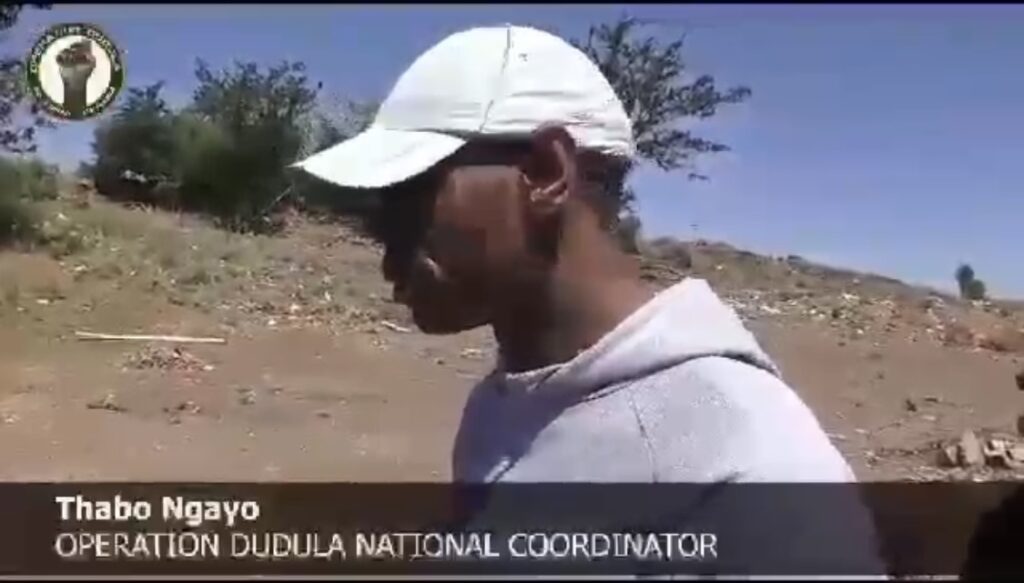Xenophobia – The South African Disease
By Femi Olugbile
There is a short video clip circulating on the social media. It is from South Africa. The location is described as Ziyakhala Kwa-Spaza Shops. There is a crowd of people standing around. A few of them are armed with sticks. There is a white van with the symbol and label of the South African Immigration department on the side. From time to time the camera cuts to scenes of young men entering nearby shops and removing items – chocolates, noodles, and an assortment of other things. There is a man wearing the uniform of one of the security forces standing by. The goods are set alight and burnt in little flames that are simmering on the ground at different spots as the crowd watches.
In the foreground is a young man in a t-shirt. He is wearing a baseball cap. He has an air of self-importance and unassailable authority about him. A guess at his age would place him between his mid-twenties and early thirties. A scrolled message at the bottom of the screen reveals that his name is Thabo Ngayo, and he is the national coordinator of ‘Operation Dudula’.
This is South Africa, in 2023, and it is a sore sight, especially the young man with the baseball cap, who speaks halting English with a drawl regularly interspersed with errors of structure and syntax.
Operation Dudula is the name of an organisation formed in Soweto in 2021 by a man named Nhlanhla ‘Lux’ Dlamini. The group led violent marches through Soweto, targeting mostly immigrants from other African countries, who they accused of being drug traffickers and criminals. They were quickly joined by other groups, and their influence and activities spread to Durban, KwaZulu Natal, and Western Cape Province.
Their conviction is that crime, always be rampant in South Africa, widespread unemployment, and even the supposedly poor health services in the country are all a result of the influx of ‘illegal immigrants’. They insist that small businesses should only employ South Africans, and that small neighbourhood shops, many of which are run by Africans from other countries, should close, because such business should be the exclusive preserve of South Africans. From time to time, they raid shops and other property and forcibly eject foreigners. Apparently, the video clip in circulation, with the young man with the face cap, is just one of their more recent ‘operations’.
People are wearily familiar with what may be dubbed ‘the South African disease’ of xenophobia. While it is not to be assumed that most South Africans agree with the hatred and hostility which some of their countrymen show to other Africans in their country, too many South Africans show a quietness which may be dubbed acquiescence. That includes prominent political figures and even royalty in KwaZulu Natal.
It is a sad failing for which many rationalisations have been attempted. President Cyril Ramaphosa, from time to time, gives public admonishments to his people about the evils of xenophobia and how they should love their fellow Africans. But xenophobia is a cause that the ruling ANC, a party founded on idealism, are fighting with platitudes, and not with the implacable resolution they used in fighting against apartheid. Some critics say that hatred directed towards foreigners helps to deflect attention away from the failings of government itself. Two and half decades of black rule are yet to deliver the promised rainbow paradise. The nation seems stuck with power outages, black unemployment, corruption, and disgruntlement in the seething townships. The only politician of note who has been up front in his denunciation of xenophobia, and in articulating a pan-African vision for South Africa, is Julius Malema, the feisty leader of the Economic Freedom Fighters (FFF).
Back to the young man in the baseball cap, whose name is Thabo Ngayo.
He summons two people to him. They are among those whose shops are being vandalised.
‘Come’ he beckons. ‘I want to ask you questions.’
The two men approach him.
‘Where are you from?’
The men tell him they are from Ethiopia.
‘You left other countries to get here – Kenya, Somalia…’
It is clear he is highly impressed by his own logic, and he continues, like a schoolteacher.
‘Spaza shops are reserved for South Africans…You’re selling drugs, sleeping with our children…’
The Ethiopians protest their innocence.
‘The Refugee law says you should go to the nearest country to you…We want to help you so you can go back to your country and fight for freedom…We fought for this country…There was bloodshed…Lots of things happened here while you were in your own country, relaxing…’
The Ethiopians try to say they are not after jobs or girls or drugs in SA, but are only trying to survive, doing their petty trade among African brothers, and keeping their noses clean. Thabo the ‘freedom fighter’ is still lecturing, not listening.
You reason he must have been in diapers, if he was born, when the real freedom struggle was being waged, and all of Africa took it as their project, at great human and material cost. Does Thabo know that the other Thabo, the one who became President after Mandela, lived in Nigeria, studying at ABU, living large on Nigerian largesse, like many of his compatriots, for years and years? Does he know that poor Zambia was bombed, and penniless Mozambique was invaded and innocent Mozambiquans murdered, in the struggle he speaks so possessively about? Does he know Nigeria was a ‘Frontline State’? Does he even know about ‘Frontline States’?
Ignorance, stupidity, a total vacuity of perspective, and the tragedy of a generational failure of education and leadership in the South African nation ooze from every pore as Thabo continues to lecture the Ethiopians, even as the petty goods from their spaza shops are being brought out by others to be burned, while the man in uniform watches with the others.
A bizarre sight. You do not know whether to laugh or cry.

